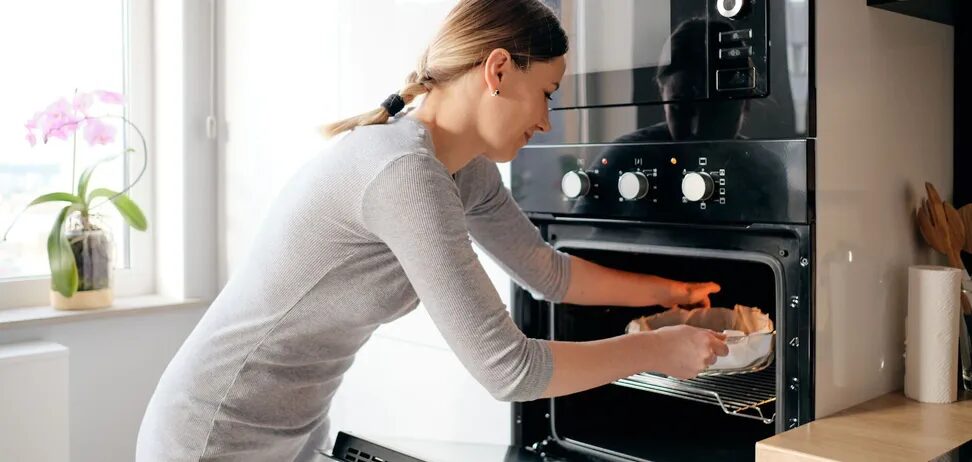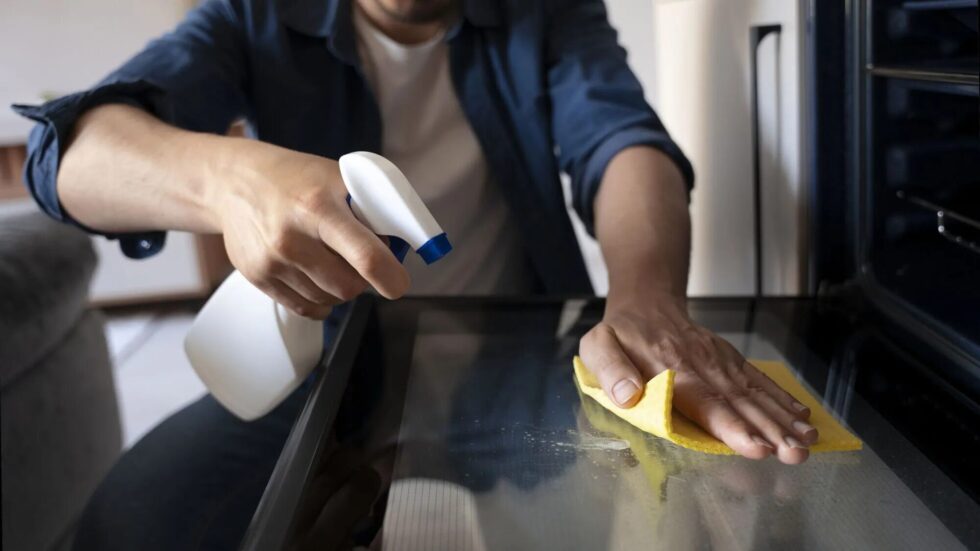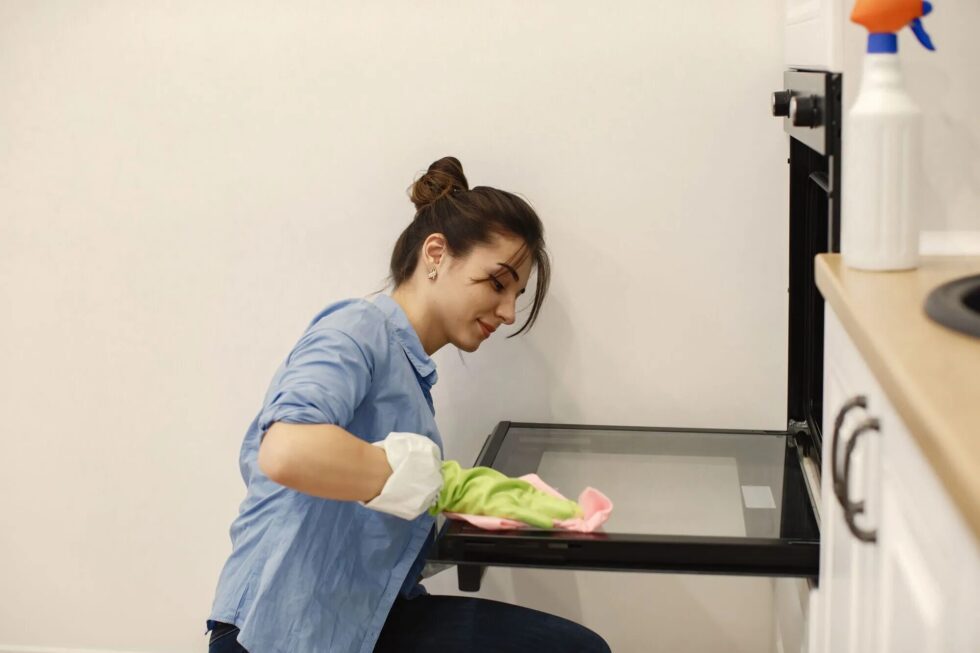How to clean your oven at home quickly with natural and eco oven cleaners in 2025

Cleaning the oven at home often feels like one of the hardest household chores. High heat, grease splashes, and caramelized sugar create stubborn layers that are difficult to remove. Many people buy strong chemical products, but these can release harmful fumes and damage the oven if used too often. Fortunately, there are safer and faster solutions that work equally well and require less effort. By understanding which methods suit fresh grease, burnt cheese, or old layers of fat, you can select the right approach and save hours of scrubbing. Modern households combine traditional home remedies with eco-friendly detergents and smart self-cleaning technologies to achieve the best results. As noted by G.business, proper oven care can extend the life of your appliance and make every meal taste better.
Why ovens get dirty so quickly
Ovens accumulate dirt faster than most appliances because they work with high temperatures and a variety of foods. Meat juices, cheese, sauces, and baked desserts all release fats and sugars that splash onto the oven’s walls. Once exposed to repeated heat cycles, these residues harden and turn into sticky or burnt layers. This buildup not only looks unpleasant but also causes smoke and odors that affect the taste of dishes. A neglected oven can even consume more electricity, since grease absorbs heat and reduces efficiency. Regular cleaning is therefore not only a question of hygiene but also of saving money on long-term energy bills.
Main reasons why ovens get dirty:
- Grease splashing when roasting meat, poultry, or fish.
- Burnt sauces, cheese, or dough falling from trays.
- Fruit juices boiling over when baking pies or cakes.
- Using undersized trays that cannot hold liquids.
- Cleaning too rarely, which allows layers to harden.
Natural cleaning solutions
Before turning to strong chemicals, many households successfully use natural solutions that are cheap, safe, and effective. Baking soda, vinegar, lemon juice, and salt are powerful degreasers that dissolve even hardened residue. These methods have been tested for generations and are ideal for families with children or allergy sufferers. Natural products also leave no toxic fumes, making them safer for regular use. With a little patience, they can achieve results comparable to expensive store cleaners.

Most effective natural oven cleaners:
- Baking soda – creates a gentle abrasive layer that breaks down grease.
- Vinegar – neutralizes odors, disinfects, and polishes glass.
- Lemon juice – dissolves sugar-based burns and refreshes smell.
- Salt – absorbs fresh grease before it hardens.
- Ammonia – suitable for very tough dirt, but requires ventilation.
Quick step-by-step cleaning method
When you need results quickly, the soda-and-vinegar method is one of the simplest and most effective. It requires no expensive products and only basic kitchen items. The chemical reaction between soda and vinegar lifts dirt from surfaces, making it easier to wipe away. This approach works well for recent stains and medium dirt, though very old layers may need a second round. The entire process usually takes less than 40 minutes and leaves no chemical odor.
How to apply the method:
- Mix three tablespoons of baking soda with two tablespoons of water to form a paste.
- Spread the paste evenly inside the oven, especially on greasy spots.
- Spray vinegar on top and allow it to foam.
- Let the mixture sit for 10–15 minutes while it loosens dirt.
- Wipe with a damp sponge or cloth.
- Dry with a clean towel and leave the door open to air out.
Best store-bought products in 2025
Sometimes natural methods are not enough, especially with years of neglect or heavy burns. In these cases, professional products can save time and deliver stronger results. Modern oven cleaners are designed to reduce scrubbing and work within minutes. They come in sprays, gels, foams, or liquids, and many eco-friendly formulas are now available in supermarkets. Prices vary, but most effective products cost under €7, making them affordable.
| Product | Type | Average Price | Features |
|---|---|---|---|
| Bref Power Backofen & Grill | Spray | from €3.50 | Works quickly on fat and grill stains |
| Frosch Oven Cleaner | Eco | from €4.20 | Natural formula, no harsh odors |
| Dr. Beckmann Oven Cleaner | Gel | from €4.90 | Precise application, safe for glass |
| Sidol Oven Cleaner | Foam | from €5.00 | Effective for heavy grease in 15 minutes |
| HG Oven & Grill Cleaner | Liquid | from €6.00 | Suitable for ovens, grills, and barbecues |
How to clean oven glass
The oven door glass is often the first thing people notice when it gets dirty. Stains and grease splashes quickly ruin its transparency, and if ignored, they bake into the surface. Dirty glass also blocks the view of food inside, forcing you to open the door and lose heat. Luckily, cleaning the glass does not require much effort if done regularly. Even weekly maintenance can prevent permanent discoloration. For very stubborn stains, combining natural pastes with a scraper gives excellent results.
Ways to clean oven glass effectively:
- Baking soda mixed with lemon juice for 10 minutes.
- Special ceramic hob scrapers for hardened dirt.
- Steam cleaners that soften old stains.
- Shine sprays that restore transparency.
Preventing heavy oven dirt
The best strategy is prevention. By developing a few small habits, you can dramatically reduce the need for deep cleaning. For example, wiping the oven after every use takes only two minutes but prevents layers of dirt from forming. Protective accessories like silicone mats also help collect grease before it reaches the oven walls. Consistent care ensures not only a cleaner oven but also healthier cooking without unwanted smoke.
Preventive care tips:
- Always wipe the oven walls after use while still warm.
- Use larger trays or silicone mats to catch spills.
- Cover dishes that produce splashing fat.
- Clean the glass every week to maintain visibility.
- Once a month, heat the oven empty at 250 °C to burn off small residues.
Modern self-cleaning oven technologies
For those who prefer minimal effort, modern ovens often come with built-in self-cleaning systems. These technologies use extreme heat, catalytic coatings, or steam to eliminate dirt. While they raise the initial cost of the appliance, they save time and reduce the need for chemicals. Each system has advantages and drawbacks, so choosing the right one depends on your cooking habits and budget.
| Technology | Description | Average Price of Oven |
|---|---|---|
| Pyrolysis | Heats up to 500 °C, turns dirt into ash | from €500 |
| Catalysis | Coated panels absorb and break down grease | from €350 |
| Hydrolysis | Steam cleaning with added detergent | from €250 |
Eco-friendly cleaning options
Households in Germany increasingly choose eco-friendly cleaners to reduce exposure to chemicals. These methods rely on biodegradable ingredients that are safe for both health and the environment. Although they may act slower, they are excellent for regular maintenance and create no harmful fumes. Eco-brands are now widely available in European stores and online, often priced between €4 and €7.

Eco-friendly cleaning options:
- Citric acid dissolved in hot water.
- Baking soda combined with salt as a scrub.
- Steam with vinegar in a heat-resistant dish.
- Eco-brands such as Frosch, Sonett, Almawin.
Common mistakes to avoid
Many oven owners make the same mistakes when cleaning, which can damage the appliance or make the process less effective. Learning what not to do is as important as knowing the right methods. Avoiding these errors helps extend the life of your oven and achieve a perfect result with less effort.
Mistakes people often make:
- Scrubbing with steel wool that scratches surfaces.
- Leaving detergents without rinsing, which causes smells later.
- Ignoring oven glass until stains become permanent.
- Using strong chemicals in a closed kitchen without ventilation.
- Forgetting to read instructions for cleaners.
How to avoid them:
- Use only soft sponges and microfiber cloths.
- Rinse and dry thoroughly after cleaning.
- Maintain weekly cleaning of glass.
- Always ventilate after using detergents.
- Follow the product guide carefully.
Cleaning your oven does not need to be a dreaded chore. With simple home remedies, affordable cleaners, and even self-cleaning technologies, the task can be done in under an hour. Regular care is key: wiping after cooking, using protective mats, and deep cleaning monthly will keep your oven shining and efficient. A clean oven not only looks better but also makes your meals healthier and tastier. By combining preventive care with the right cleaning methods, you can ensure your appliance lasts for many years with minimal effort.